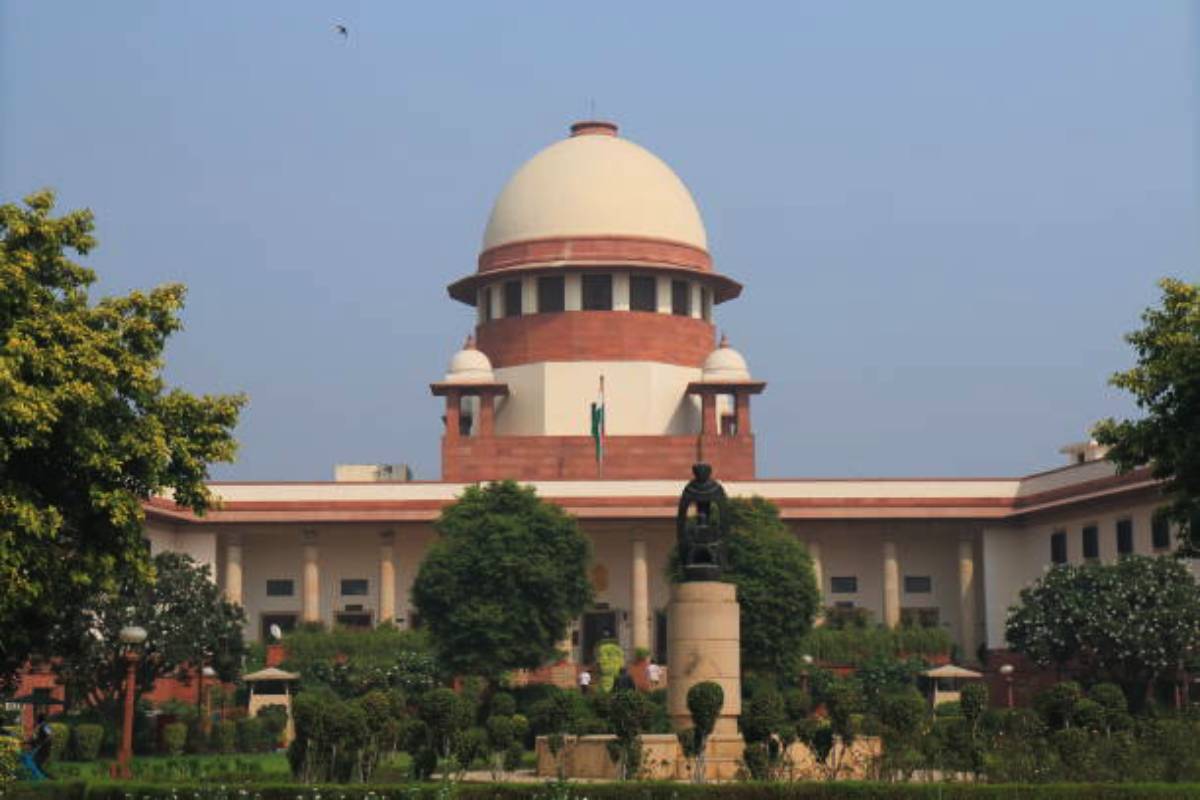SC halts passing of interim, final, or surveys involving religious places
The Court gave the Central government four weeks’ time to file its response to the petitions challenging the certain provisions of the 1991 law.
One of the petitions have contended that the law under challenge excludes the birthplace of Lord Rama but includes the birthplace of Lord Krishna, though both are the incarnation of Lord Vishnu, the creator and equally worshiped all over the world.

File Photo: Supreme Court of India
The Supreme Court on Tuesday gave the Centre three months to respond to a batch of petitions challenging certain provisions of Places of Worship (Special Provision) Act, 1991, that prohibit the filing of a lawsuit to reclaim a place of worship or seek a change in their character from what that prevailed on August 15, 1947.
A bench of Chief Justice DY Chandrachud and Justice Pamidighantam Sri Narasimha and Justice Manoj Misra granted the time till October 31, 2023, on a request by the Centre seeking more time to file response.
Solicitor General Tushar Mehta appearing for Centre told the bench that the government is considering the matter and it requires more time to state its position.
Advertisement
“I am conscious of the fact that I have sought time for this before … but it is under consideration. Central government needs more time to file…,” Solicitor General Mehta told the bench.
Earlier on October 12, 2022, a bench of Chief Justice Uday Umesh Lalit, Justice Ajay Rastogi (both since retired) and Justice S Ravindra Bhat had given the Central government two more weeks’ time to respond to a batch of petitions challenging the provisions of the Places of Worship (Special Provision) Act, 1991.
During the hearing on October 12, the court had said that they will be in a better position to adjudicate the matter if Centre spells out its position on the contentious issue. The court had said that when the challenge is to a central legislation, we will be guided by what is the stand of the Central government in this case.
The batch of the petitions challenging the Places of Worship Act have contended that the Act takes away the rights of Hindus, Jains, Buddhists, and Sikhs to restore their ‘places of worship and pilgrimages’, destroyed by invaders.
The All-India Muslim Personal Law Board (AIMPLB) too has moved the top court opposing the petitions challenging the validity of Places of Worship Act, 1991.
The petitioners challenging the constitutionality of the Places of Worship Act include, among others, the daughter of the Kashi Royal Family, Maharaja Kumari Krishna Priya, BJP leader Subramanian Swamy, Ashwini Kumar Upadhyay, former Member of Parliament Chintamani Malviya, a retired army officer Anil Kabotra, advocates Chandra Shekhar, Varanasi resident Rudra Vikram Singh, a religious leader Swami Jeetendranand Saraswati, a resident of Mathura and a religious guru Devkinandan Thakur Ji.
One of the petitions have contended that the law under challenge excludes the birthplace of Lord Rama but includes the birthplace of Lord Krishna, though both are the incarnation of Lord Vishnu, the creator and equally worshiped all over the world.
The petitioners have contended that the 1991 law violates the principles of secularism and Sections 2, 3, 4 of the Act have taken away the right to approach the Court and thus the right to judicial remedy has been closed.
Advertisement